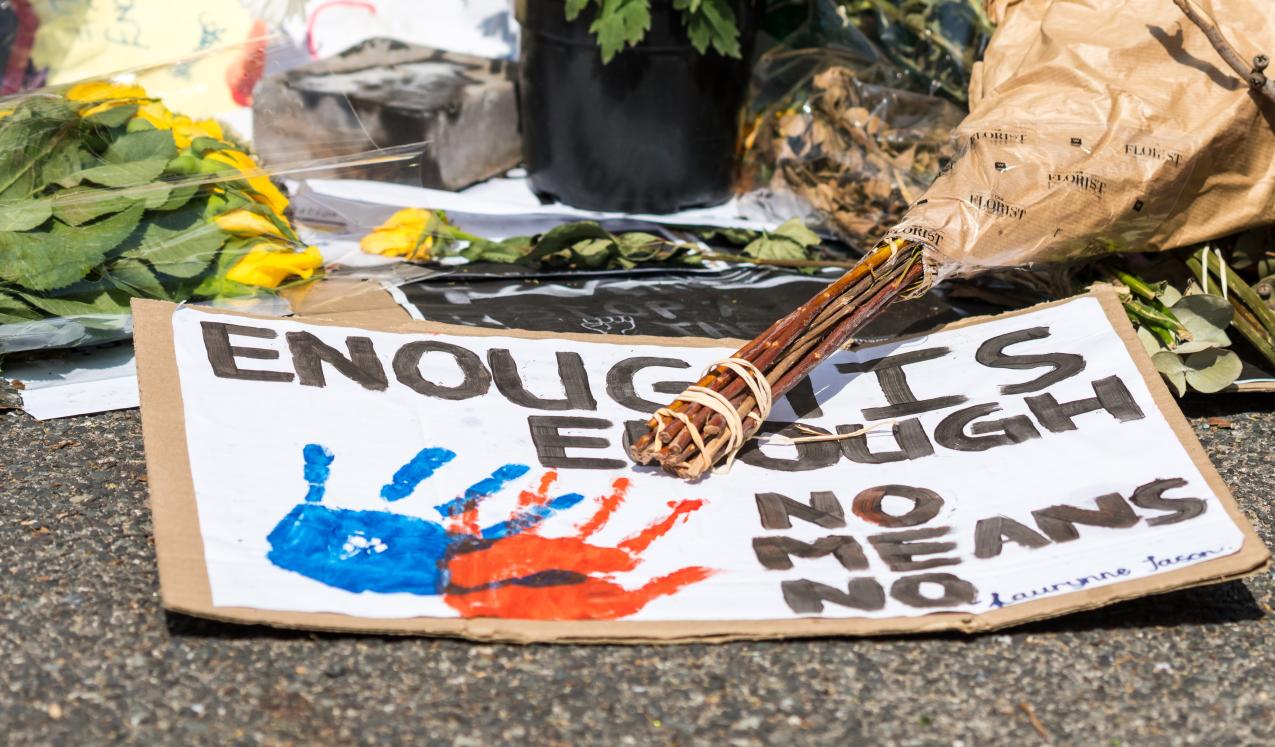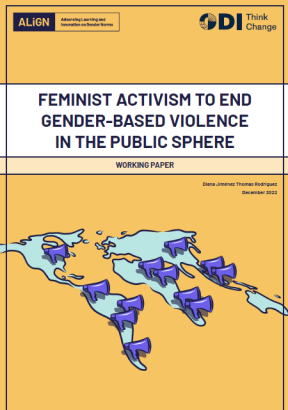
Gender-based violence (GBV) is a clear and damaging consequence of gender inequality as well as a mechanism used to enforce discriminatory norms and maintain unequal gendered power relations.
GBV can take various forms, including physical, sexual, emotional, verbal, and digital violence. Women and girls are most commonly victims. People whose identities challenge prevailing gender norms, such as gay boys and men and gender non-conforming people (such as trans and other queer women) are also particularly at risk. Intersecting marginalisations, such as those based on class, race or religious inequalities, deepen peoples' vulnerability to GBV and restrict their ability to access justice and support services.
GBV is sustained and sanctioned by oppressive gender norms such as male authority and dominance over female bodies and masculinity being defined in terms of toughness and heterosexual virility. Transforming such gender norms is thus central to preventing and eliminating GBV. Feminist movements worldwide have been seeking to change such norms through street protests, digital campaigns, art, advocacy for legal reform, and community-based prevention and response work, among other strategies.
Resources on the ALIGN platform discuss how gender-based violence affects women and girls and LGBTQI+ people across different spaces, the impact of feminist activism on GBV-related gender norms, and the role of education in shifting the norms that underpin GBV.
Featured resources
Briefing paper
22 November 2022

Published by: ALIGN
14 June 2024

Briefing paper
12 December 2022

Report
23 November 2021

Report
3 December 2025


Content is loading...
Upcoming research
We are currently undertaking research on the following themes:
Feminist activism against GBV
Feminist activism plays a key role in the prevention and elimination of GBV. Our current research focuses on:
- Arts-based approaches to challenge norms that underpin GBV. Upcoming research will examine the impact of performance and visual arts among Rohingya communities in Bangladesh.
- Collaboration between feminist and LGBTQI+ movements to shift norms that contribute to GBV. (More details coming soon).
Gender-based violence content from the ALIGN community
Report
4 November 2025

Report
20 October 2025

Report
22 September 2025


Content is loading...
